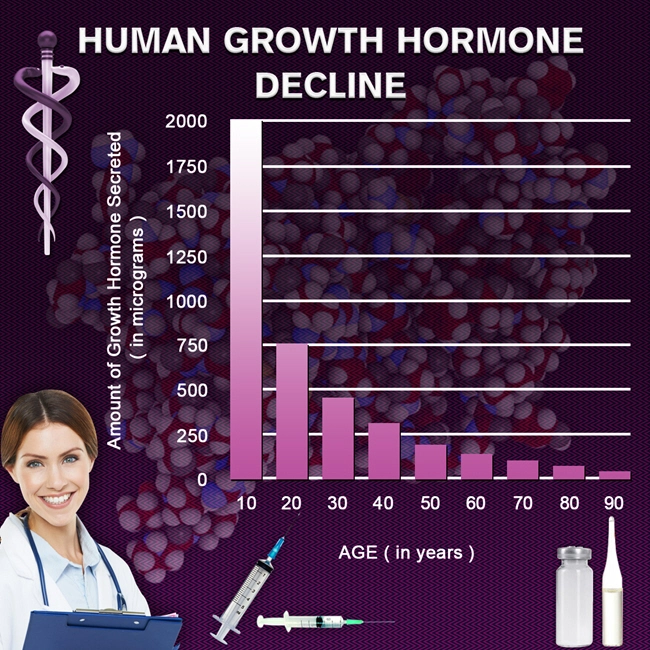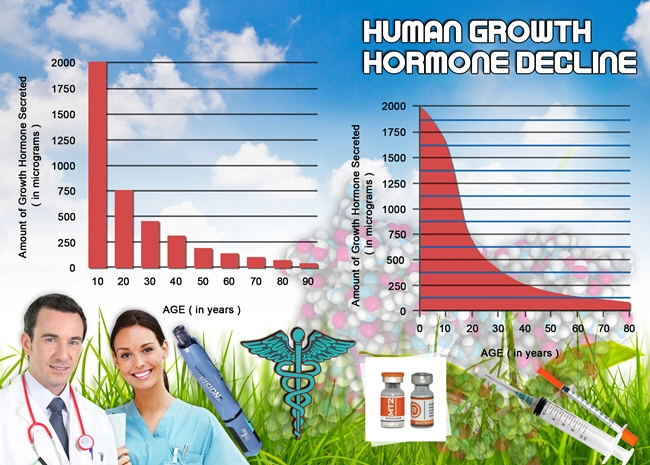
 In recent hormone news, Stanford University seems to have actually found a way to reverse many health issues related to aging. We see all kinds of claims online and at the stores that this herb does this, and that vitamin does that to stop or combat aging, but scientists seem to be on to something that is more than just taking a pill: the molecular key to reversing age-related health issues.
In recent hormone news, Stanford University seems to have actually found a way to reverse many health issues related to aging. We see all kinds of claims online and at the stores that this herb does this, and that vitamin does that to stop or combat aging, but scientists seem to be on to something that is more than just taking a pill: the molecular key to reversing age-related health issues.
Video Link: https://vimeo.com/544410089
Video Download: Click Here To Download Video
Video Stream: Click Here To Stream Video
Our Immune Systems Seriously Weaken As We Age
Our immune systems take a dive as we get older and this is why the elderly are so susceptible to disease and illness, and these days, COVID-19 in particular.
Those macrophages and T-cells that zoom around our bodies looking for infection and invaders when we are young become more sluggish and less capable of detecting a problem as the years go by. Their effectiveness is also affected by our lifestyle choices as well. The end result: more illness and worry about your health as you age.
In addition, a slow immune system also means that it will not respond as quickly to age-related diseases in the brain, such as dementia. Dementia is considered by many to be one of the worst afflictions of old age. Losing your memory and becoming dependent on your loved ones is not something any one of us wants to experience, especially when we want to enjoy retirement and our free time.
Inflammatory Hyperdrive is the Cause of Age-Related Diseases
That Stanford University study determined that inflammatory hyperdrive is the cause behind most age-related diseases, including cancer and cognitive decline. That’s right: CANCER. If we can find a way to reverse cancer, that would be quite an accomplishment!
 The cause of the inflammatory hyperdrive appears to be the rise of a specific hormone called PGE-2, which appears to naturally increase in the human body as we age. It has also been known to promote inflammatory activity in immune cells.
The cause of the inflammatory hyperdrive appears to be the rise of a specific hormone called PGE-2, which appears to naturally increase in the human body as we age. It has also been known to promote inflammatory activity in immune cells.
Naturally, the study authors wanted to see what happened when this hormone was inhibited and the inflammatory activity was arrested. They used an experimental drug to stop the hormone’s activity and the inflamed cells associated with age-related illnesses showed less inflammatory characteristics, appearing regenerated.
The study was published in the journal Nature with the subjects being older mice and human cell cultures.
Myeloid Cells and PGE-2
The culprit here, PGE-2, is mainly produced by myeloid cells which are found in the brain, peripheral tissues, and circulatory system. They are a part of the immune system and fight foreign intruders as well as cleaning up and ridding the body of old cells and proteins. As our bodies age, these cells tend to go haywire and start attacking random tissues, causing inflammation.
What was amazing was that, when PGE-2 was blocked from interacting with myeloid cells in older mice, the health-promoting activities of the myeloid cells was restored. This resulted in the seemingly miraculous result of the mice restoring their recall and navigation skills comparable to young mice. Their age-related mental decline was reversed.
Katrin Andreasson, MD, senior author of the study states, “If you adjust the immune system, you can de-age the brain.” Amazing!
 The Elderly Have More Receptors for PGE-2
The Elderly Have More Receptors for PGE-2
The authors of the study also compared myeloid cells between people older than 65 and people younger than 35. They found that older mouse and human macrophages (a type of myeloid cell) produced more PGE-2 than younger ones. Not only that, but they also had more receptors on their cell surfaces for PGE-2, which once bound, initiates the inflammatory activity.
Andreasson also stated, “It’s a double-whammy – a positive feedback loop.” And one that is impossible to get out of if not obstructed in some way.
The study authors did find a way, however, and all that is needed next is further research into how this can be utilized by humans. One of the two compounds used to block the activity of PGE-2 was effective even though it did not cross the blood-brain barrier, suggesting that regenerating myeloid cells outside of the brain can have health-promoting effects on other cells within the brain.
Unfortunately, both of the compounds are not approved for human use at this time. However, this is research that we should be sure to follow over the coming years! The incredible results of this study – reversing cognitive decline – is one of the best things that came out of 2020!
References
Contact Us Today For A Free Consultation
Dear Patient,
Once you have completing the above contact form, for security purposes and confirmation, please confirm your information by calling us.
Please call now: 1-800-380-5339.
Welcoming You To Our Clinic, Professor Tom Henderson.

- Finally! A Safe, Effective and Easy Way to Slow Aging: Genotropin HGH Product [Last Updated On: February 17th, 2025] [Originally Added On: June 24th, 2020]
- Metformin: The First Effective Anti-Aging Drug? [Last Updated On: February 16th, 2025] [Originally Added On: June 29th, 2020]
- A new study says Human Growth Hormone (HGH) can reverse aging! [Last Updated On: October 13th, 2024] [Originally Added On: June 30th, 2020]
- What Metabolism Reveals About Aging and Mortality [Last Updated On: February 17th, 2025] [Originally Added On: December 1st, 2020]
- The Six Biggest Hormone Disruptors to Avoid [Last Updated On: October 8th, 2025] [Originally Added On: May 16th, 2021]
- Laugh It Up! Boost Your HGH FAST [Last Updated On: August 14th, 2025] [Originally Added On: June 7th, 2021]
- Why Poor Sleep Quality is a Serious Detriment to Your Health [Last Updated On: October 6th, 2025] [Originally Added On: June 12th, 2021]
- Scientists Bold Prediction: We'll Soon Extend Life Well Beyond 120” [Last Updated On: June 1st, 2025] [Originally Added On: August 24th, 2021]
- Can My Hormones Make Me Fat? [Last Updated On: August 13th, 2025] [Originally Added On: September 1st, 2021]
- Testosterone Therapy may protect Telomeres and slow aging [Last Updated On: February 16th, 2025] [Originally Added On: September 14th, 2021]
- Minoxidil: A potential cure for baldness? [Last Updated On: October 7th, 2024] [Originally Added On: November 16th, 2022]
- The Quest for the Secret of Longevity [Last Updated On: September 30th, 2025] [Originally Added On: November 24th, 2022]
- Jeff Bezos Wants to Stop Aging! [Last Updated On: October 3rd, 2025] [Originally Added On: November 24th, 2022]
- Is it possible to live to 180? Perhaps! [Last Updated On: October 19th, 2024] [Originally Added On: November 29th, 2022]








